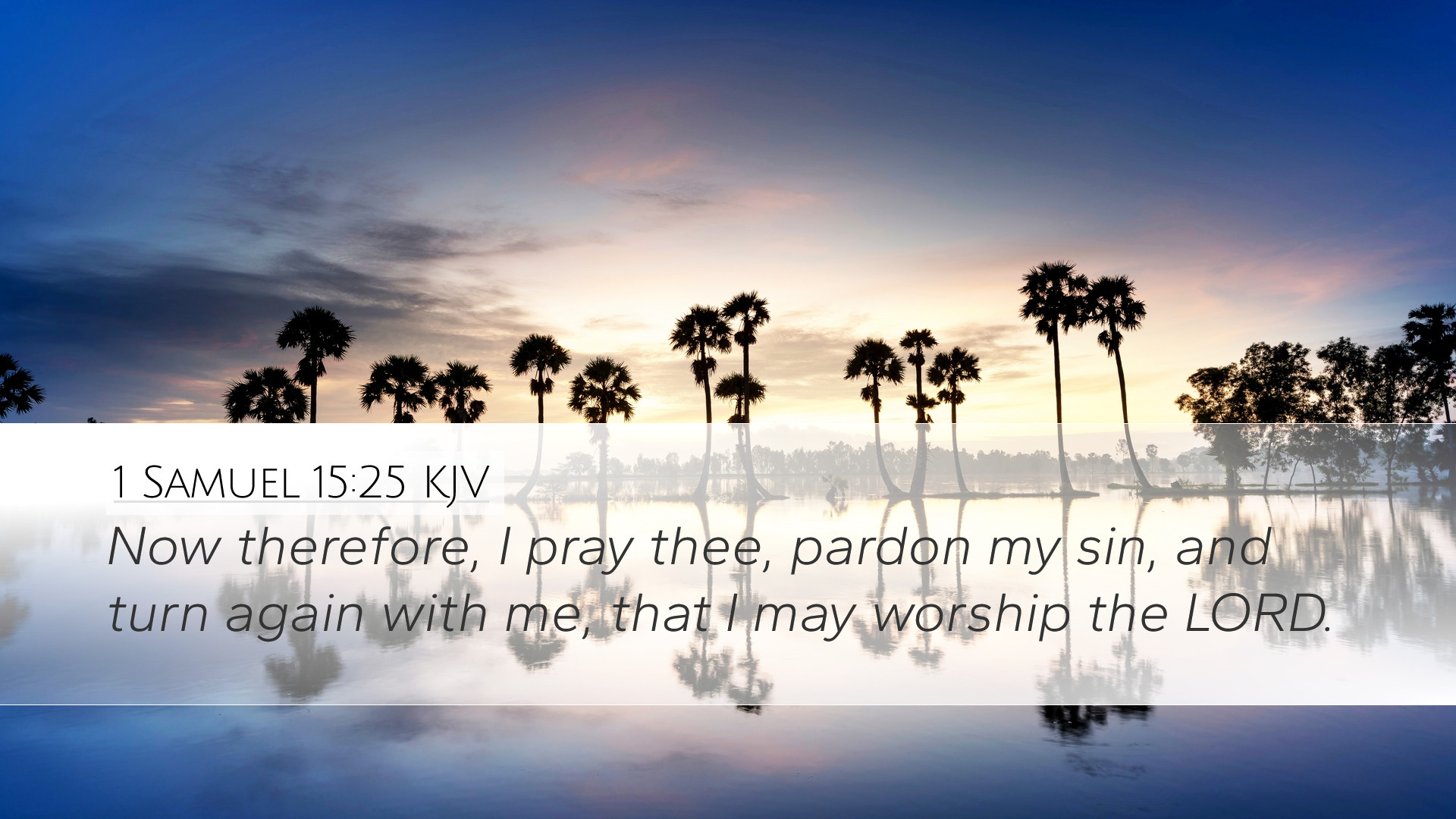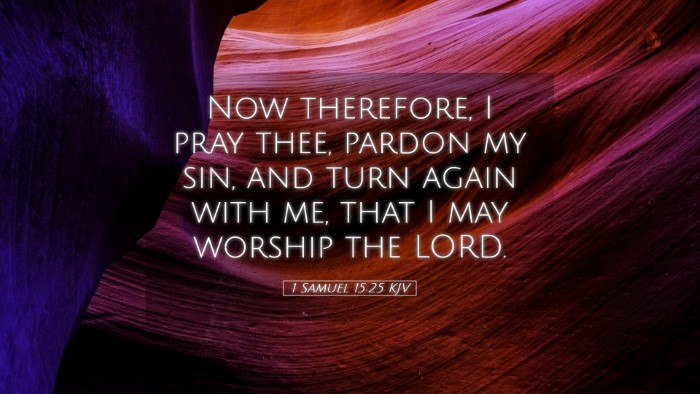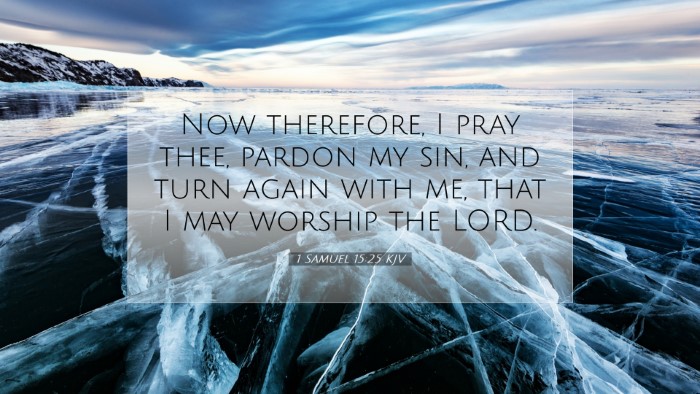Bible Commentary on 1 Samuel 15:25
Bible Verse: 1 Samuel 15:25 - "Now therefore, I pray thee, pardon my sin, and turn again with me, that I may worship the Lord."
Introduction
The verse is situated in a pivotal moment during King Saul's reign, showcasing the tension between divine command and human failure. This passage, laden with implications for leadership, repentance, and the nature of divine mercy, has been the subject of extensive theological examination.
Contextual Analysis
1 Samuel 15 records the fall of Saul, prompted by his disobedience to God's command through the prophet Samuel. Saul's mission to destroy the Amalekites was undermined by his decision to spare King Agag and the best of the livestock, which he justified as a means of sacrifice to God. This moment reflects the broader theme of obedience versus sacrifice in the relational dynamics between God and His people.
Matthew Henry's Insights
Henry emphasizes the grave error in Saul's approach to sacrifice, noting that disobedience cannot be rectified through offerings. He states:
"It is better to obey than to sacrifice; and to hearken than the fat of rams." (1 Samuel 15:22)
This encapsulates the heart of Saul's plea — he desires restoration and continued favor from Samuel as a means to maintain his kingship. Henry points out that Saul's request for pardon is motivated by self-preservation rather than genuine repentance, illustrating the complexities of leadership and accountability.
Albert Barnes' Commentary
Barnes provides a deeper theological reflection on the passage. He notes:
"Saul, in seeking Samuel's pardon, displays a misunderstanding of God’s requirements."
Barnes argues that true repentance should involve a recognition of sin and a commitment to change, rather than simply seeking forgiveness when faced with the consequences of disobedience. This aspect highlights the potential for superficiality in confession, especially under pressure.
Adam Clarke's Perspective
Clarke offers a practical viewpoint regarding Saul’s emotional state at this juncture. He suggests that Saul's plea for pardon reflects a deep-seated fear of losing God’s presence and blessing:
"Turn again with me, that I may worship the Lord."
This plea, Clarke remarks, reveals Saul's understanding that worship is central to the covenant relationship with God. His urgency reflects a desire not for a changed heart but for the appearance of reconciliation. Clarke points out that this emphasizes the importance of sincerity in worship and the dangers of treating it as a transactional exchange.
The Nature of Repentance
The verse highlights key elements of repentance that are critical for scholars and leaders to understand in their theological discussions:
- Recognition of Sin: Saul acknowledges his wrongdoing, which is a critical first step towards genuine repentance.
- Plea for Forgiveness: His request for pardon indicates a desire to be restored to a favorable position.
- Desire for Restoration: The plea to worship signifies a longing to return to a right relationship with God.
Theological Implications
The implications of this passage extend into contemporary theology and pastoral practice. It poses challenging questions about the nature of repentance and the authenticity of worship. Pastors and theologians might consider the following points drawn from the commentaries:
- The Authenticity of Confession: Is confession merely for the sake of avoiding punishment, or is it a heartfelt acknowledgment of wrongdoing?
- The Role of Leadership: What does Saul’s example teach us about the responsibility of leaders to be obedient to God’s directives?
- God’s Nature as a Merciful Judge: How do we reconcile Saul’s plea for mercy with the understanding of God’s justice?
Conclusion
1 Samuel 15:25 serves as a rich text for understanding the dynamics of repentance, leadership, and worship. The combined insights from Matthew Henry, Albert Barnes, and Adam Clarke reveal the intricacies of Saul's character and the broader theological lessons applicable to modern believers.
As pastors, students, and theologians engage with this passage, the challenge remains to cultivate genuine repentance and worship that aligns with God’s will above mere ritualistic practices.


